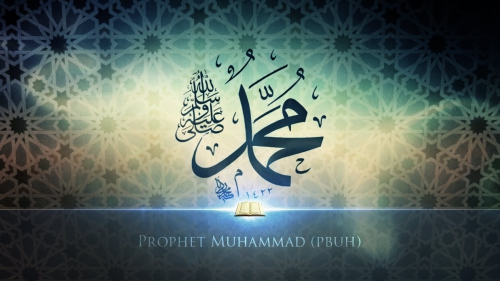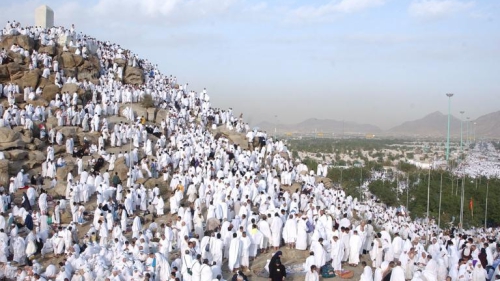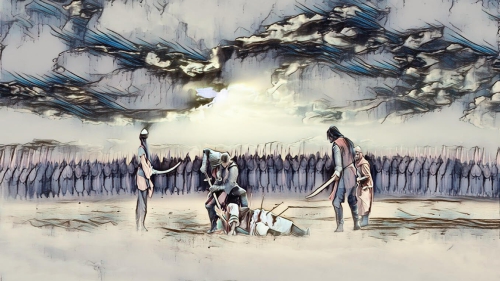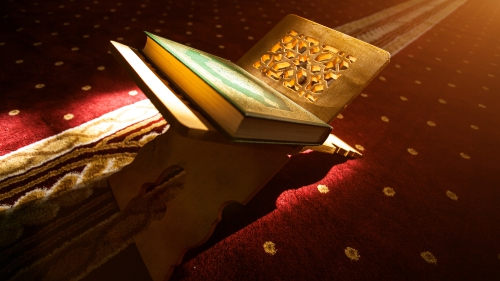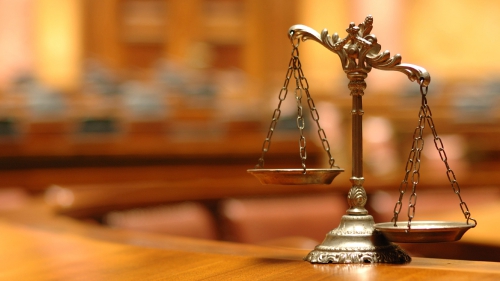I am not a puppet

We hear the words: “I am an independent person. I think for myself. I argue with those even with whom I agree on issues. I am not a puppet.
“I do not follow anyone blindly. Nobody tells me what to do or what to say. I decide that for myself. This should tell others that I am an independent person; that I am not dealing with someone’s secret agenda.
“Masha Allah! Everything is so wonderful. Alhamdulillah! We are doing very well. Everything is going great! Alhamdulillah!
“Everyone is welcome to participate in our deliberations. If you don’t do that, then do not be grumpy and don’t tell others that we are imposing our will. Just trust us. Have patience. Everything will be fine. Insha Allah, everything will be fine…. Insha Allah! We will continue to make progress. Alhamdulillah! The youth are doing extremely well… Alhamdulillah!
“I am a fair and honest person. In fact, I am completely fair in how I conduct business in a completely fair and transparent way. I follow a democratic process. I am never rude or arrogant. But, in spite of this, I am unfairly subjected to a smear campaign as if I am some kind of a dictator trying to impose my will if I limit time for discussion and set up a deadline for conducting business that is opened to anyone who cares to join. What can be fairer than that?”
I claim all of the above. So far, so good.
But should I also have to be honorable in my claims? Should I not pay attention to my actions? Do not my actions speak louder than my words? Maybe those observing my actions see a pattern that tells a far different story than my words. If the pattern of my actions belies my claims, then do my claims mean anything at all?
To be fair in such an assessment, one must look to the reality on the ground.
“Are you unhappy?” “Yes, I am.…Yes.” Why are people then so unhappy? Why then when all the above actions are based on supposedly noble intentions is there so much unhappiness all around?
And what about the disarray, the viciousness, the mistrust and suspicion? If things are so fair, so transparent, so democratic, then why are symptoms of a malignant tumor so prevalent in the Body Politic of the community? Could it be that a cancer has taken over our larger self?
If I am the leader then should I simply blame others for this cancer and move on? Should I just dismiss this cancer and pretend that it is not there? Should I say: “Tough luck? Majority rules! That is Democracy. Do not make noise.”
Or, should I use the now familiar rhetoric: “If you people have problems then do not spread them in the community. Come, talk to me. I will listen to you.”
Then I drag and drag until I can no longer drag.
And only then I listen to the complaints but do nothing. In effect, I waste everyone’s valuable time. Maybe I use this strategy to frustrate those whom I consider as “others.” Maybe I practice the dictum that if you are not with us then you are with “them.” But is this the way to achieve any solution, let alone a complex solution involving community issues? Is this the way our Prophet (PBUH) solved the community’s problems? Is this the way he led the Muslim community? Is this the way to practice his Sunnah – especially by those who keep on touting his Sunnah so much?
Some claim that they are following the Prophet (PBUH) by dividing the community. Did our Prophet (PBUH) ever divide a Muslim community? Did he ever threaten anyone with anything, let alone a fellow Muslim?
Was it our Prophet (PBUH) or Abu Jahl who threatened Muslims with dire consequences? Are we then following the Prophet (PBUH) or following Abu Jahl when we try to divide Muslims or threaten them, no matter what justifications we use?
Here is a dilemma. We may think with our head but we mostly act with our heart, especially when religious issues are involved. In the battle of head and heart we succumb to the heart. Consequently, we become slaves of our emotions (25:43, 45:23). The emotion then uses the mind as a powerful tool to achieve its ends. Wearing a cloak of outward spirituality, some of us even attempt to use Islam and the Prophet (PBUH) to achieve emotional goals, based upon ulterior motives.
Thus, the community frictions become emotional fissures in the end. After all, what is a community but a collection of individuals? As individuals, we bring our own belief systems, and our own cultural baggage stuck deep down in our emotions. As a consequence, we become resistant to even self-evident truths. For example, when the Qur’an condemns those who cause division among Muslims and Islam (30:31-32, 42:13) we justify these divisions in the name of Islam even though the agenda has nothing to do with Islam or our Prophet (PBUH) (6:159). We may be very sincere in our justification but that is where the problem lies.
We may not realize it but our brain does lie to us or, to use a popular term, “plays tricks on us.” We may know the self-evident truth of a message (e.g., causing division among Muslims is against the Qur’an) and we may accept it on the surface but because deep down our brain has been programmed and reprogrammed, we justify these divisions due to fear of losing our identity. This is because if we are told and retold something as a fact it goes deep into our truthsubconscious mind. Once there, it is extremely hard to change it or to dislodge it, even if we know that it conflicts with reality. We suffer from cognitive dissonance.
In fact, our brain then justifies the fallacy even more vigorously when confronted with truth. This is also the reason why we react strongly if someone points out the discrepancy between our words and our actions. This triggers an emotional outburst in us – especially more so in the case of some long held beliefs.
The Qur’an constantly reminds us to examine our life and to question our age old beliefs. It warns us that we will be questioned on this issue on the Day of Judgment. It asks us not to say that which we do not do (61:2-3). There must be harmony between our words and our deeds.
The hearts of Muslims should be bonded together in love. If this bond is missing we turn a trivial molehill into an unbridgeable mountain. Then, everything becomes meaningless including all the outward display of religiosity and spiritualism. The Qur’an is very clear on this:
وَاعْتَصِمُوا بِحَبْلِ اللَّـهِ جَمِيعًا وَلَا تَفَرَّقُوا ۚ وَاذْكُرُوا نِعْمَتَ اللَّـهِ عَلَيْكُمْ إِذْ كُنتُمْ أَعْدَاءً فَأَلَّفَ بَيْنَ قُلُوبِكُمْ فَأَصْبَحْتُم بِنِعْمَتِهِ إِخْوَانًا وَكُنتُمْ عَلَىٰ شَفَا حُفْرَةٍ مِّنَ النَّارِ فَأَنقَذَكُم مِّنْهَا ۗ كَذَٰلِكَ يُبَيِّنُ اللَّـهُ لَكُمْ آيَاتِهِ لَعَلَّكُمْ تَهْتَدُونَ (3:103).
“And hold fast, all together, unto the bond with God, and do not draw apart from one another. And remember the blessings which God has bestowed upon you: how, when you were enemies, He brought your hearts together, so that through His blessing you became brethren; and [how, when] you were on the brink of a fiery abyss. He saved you from it. In this way God makes clear His messages unto you, so that you might find guidance.”
So, let us try to work on developing this bond by putting everything else aside for the moment that divides, that breeds suspicion and mistrust amongst us. Practicing the five pillars is easy but creating this bond of love, أَلَّفَ بَيْنَ قُلُوبِكُمْ (allafa bayne qulubikum), is not an easy task as the above verse attests. Notice that if I proclaim that we should love each other it is imperative that I help make that bond of love happen by my actual deeds. On the other hand, if I blame others for a failure to create that bond then my claim to love is deceptive and meaningless.
Let us pray to Allah that He may help us join our hearts together and let us make a sincere effort to be true to heart in this supplication, as will be evident by our deeds. When we commit to an action in heartfelt sincerity, we may then, by Allah’s leave, unleash the power of synergy that transcends the temporal or religious emotional barriers that separate us.
Views: 1295
Related Suggestions








